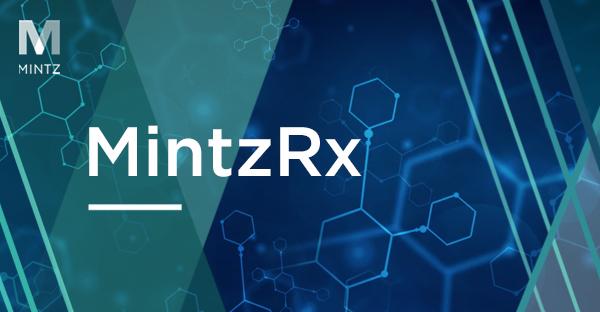Will Sustained Pressure on the 340B Program Finally Lead to Much Needed Reform?
As we enter into the final months of 2024, new developments in the administration of the 340B Drug Pricing Program signal that additional reform may be on the way. Although recent revisions to the 340B program’s administrative dispute resolution (ADR) process represented a positive development in program reform, many questions remain as to how the Health Resources and Services Administration (HRSA) along with Congress may resolve stakeholder concerns with the drug pricing program’s future.
The Rise of State 340B Contract Pharmacy Laws
The 340B Drug Pricing Program is a federal plan that allows covered entities to purchase outpatient drugs from manufacturers participating in Medicaid at discounted prices. As a condition of participation in the Medicaid program, drug manufacturers must sign a Pharmaceutical Pricing Agreement (PPA) and its addendum. The addendum requires each manufacturer to “offer” covered entities covered outpatient drugs for purchase at or below the 340B ceiling price. Participation in the 340B program also carries certain program integrity requirements such as preventing diversion of 340B drugs to non-340B eligible patients and preventing covered entities from receiving both a 340B discount and a Medicaid drug rebate for the same drug (duplicate discounts). Although certain compliance resources have been shared by HRSA, the method of compliance with these restrictions has largely been left to stakeholder discretion.
Many covered entities contract with outside retail pharmacies to dispense 340B-priced drugs to their patients to avoid having to maintain in-house pharmacies. But, in the summer of 2020, drug manufacturers began to limit the ability of covered entities to contract with outside pharmacies. Manufacturers state that the purpose of these restrictions is to prevent against diversion and duplicate discounts. And although HRSA has warned manufacturers against the usage of this practice, existing ambiguity in the program’s administration has allowed such contract pharmacy restrictions to spread across the country.
Manufacturers’ contract pharmacy restrictions have prompted states to react and introduce laws protecting access to 340B-priced drugs by these contract pharmacies. Arkansas and Louisiana enacted laws that limit manufacturers from placing conditions upon the delivery of 340B drugs to contract pharmacies and prohibiting the manufacturers from refusing to supply the discounted drugs. In response, the Pharmaceutical Research and Manufacturers of America (PhRMA) challenged both Arkansas and Louisiana state laws, and drug manufacturers are challenging Louisiana’s state law in federal court. Generally, the suits allege that the state laws encroach on federal authority and preempt federal law, while the states argue that the laws fall within the states’ police power to regulate the health and safety of their residents.
On March 12, 2024, a three-judge panel for the Eighth Circuit unanimously upheld Arkansas Act 1103 that required drug manufacturers to provide 340B-discounted drugs to contract pharmacies working with 340B covered entities. The panel disagreed with PhRMA and found that the Arkansas law was not preempted by the 340B statute, stating that “[w]e believe Congress was aware of the role of pharmacies and state pharmacy law in implementing 340B […] therefore, Congressional silence on pharmacies in the context of 340B indicates that Congress did not intend to preempt the field.” The court further noted that although the 340B statute does not directly address the role of pharmacies in the 340B program, they are indeed essential to the administration of the program
While Arkansas was one of the first states to act upon this Congressional silence, it was not the only state to do so nor will it likely be the last. An analysis completed by 340B Report on August 6, 2024, shows that in just 2024, as many as six states have enacted 340B contract pharmacy protection laws (Kansas, Maryland, Minnesota, Mississippi, Missouri, and West Virginia). The analysis also shows that three states (Delaware, Kentucky, and Rhode Island) have had such laws pass at least one chamber in their respective state legislatures, while fifteen other states have had such laws introduced.
Most recently, a U.S. District Court Judge in Baltimore declined to issue a preliminary injunction that would have temporarily blocked a Maryland law (HB1056) prohibiting 340B drug manufacturers from directly or indirectly denying, restricting, prohibiting, discriminating against, or limiting the acquisition or delivery of a ‘340B drug’ to a pharmacy on behalf of a ‘covered entity’” except if the receipt of 340B drugs is prohibited by HHS or if required under a federal risk evaluation and mitigation strategy.” The order did not include the court’s reasoning for refusing to grant the injunction. Maryland’s law became effective July 1, 2024, and makes a violation of the 340B drug distribution protections an “unfair, abusive, or deceptive trade practice” under the state’s Consumer Protection Act. Such a violation would subject a manufacturer to additional fines, money damages, and even potential criminal liability, in addition to the penalties included in HB1056. Reuters previously reported on legal challenges to the 340B contract pharmacy laws enacted in Mississippi and West Virginia. Those challenges remain pending.
The rise of state legislative action on 340B has not gone unnoticed in Congress. In a seemingly direct response to the rise of state contract pharmacy protection laws, the 340B PATIENTS Act of 2024 (H.R.7635), introduced on March 15, 2024, would require drug manufacturers to offer 340B priced drugs to any 340B covered entity, “regardless of the manner or location in which the drug is dispensed”. The law would protect a covered entity’s ability to contract with an unlimited number of contract pharmacies to dispense 340B priced drugs. On September 11, 2024, Senator Peter Welch (D-Vt.) introduced the Senate version of the 340B PATIENTS Act. Senator Welch’s announcement of the Senate companion bill included joint statements from Representative Matsui (D-Ca 7th District), who introduced the House version, as well as statements from various health care provider groups.
Consequences of Delaying 340B Reform
As stakeholders continue to grapple with program integrity requirements and state action against contract pharmacy restrictions, manufacturers may soon look to other approaches to guard against diversion and duplicate discounts, such as a rebate model that requires proof that a 340B drug was dispensed to a 340B patient prior to effectuating the 340B discount. This type of approach would raise certain questions, such as whether the model violates the 340B statute. Additionally, would a rebate model that requires covered entities to show proof that a 340B drug was dispensed to an eligible patient before receiving the 340B price comport with the statute? If the covered entity ultimately receives the 340B price, does it matter when that price is realized? Would such a model allow for a manufacturer to reasonably differentiate when a drug should be sold at the 340B price or the maximum fair price (MFP) under Medicare’s drug price negotiation program? As manufacturers respond to the changing market, existing ambiguity in the 340B statute and continued delay in Congressional reform may result in the courts answering some of these questions.

340B Program Administrative Dispute Resolution Final Rule: Key Takeaways
May 16, 2024| Blog

MintzRx — The 340B Drama Continues
October 3, 2022| Blog
Authors
Abdie Santiago
Associate


